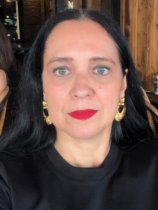Session moderated by Patrick Boucheron.
Each 30 minute presentation is followed by 10 minutes of discussion.
Abstract
When the Académie française was founded, the decision was made to exclude women. At the same time,many educational treatises of the 17th century (such as the most famous of them all, Fénelon'sL'Éducation des filles ) stressed the uselessness of most sciences for women. Given this observation, is the modern era a time of disqualification for women in the sciences ? While we must emphasize the often ironic discourse concerning women who want to learn and practice the sciences, we note that the question of the legitimacy and recognition of women scholars is in fact debated and gives rise to a variety of responses. On the one hand, there were advocates of women's right of access to and participation in scientific activities ; on the other, women actually practiced science (a term that would have to be defined in its contemporary sense). We can therefore highlight both theoretical and practical elements supporting this nuanced perspective. Reflection on the nature of women (are they able to think as well as men ?) and examination of the social roles of bothsexes will help us to understand that, for properly philosophical reasons, women scholars were not necessarily considered ridiculous in the 17th century . The analysis will focus on Marie de Gournay, René Descartes, Élisabeth de Bohême, Louis de Lesclache and François Poullain de La Barre.
Marie-Frédérique Pellegrin

Marie-Frédérique Pellegrin is a specialist in modern philosophy, having studied at the École normale supérieure, and holds an agrégation and a doctorate in philosophy. She is particularly interested in Malebranche's thought, as well as Cartesianism and its posterity, notably feminism. She is currently working on the question of the philosophical canon and the need to include women philosophers in it. To this end, she is re-reading the works of Marie de Gournay and Élisabeth de Bohême. Her latest work (Pensées du corps et différences des sexes à l'Époque moderne, ENS Éditions) proposes a psycho-physiology of sex and gender in the modern era, based on the question : does the sex of the body influence thought ?
Speaker(s)
